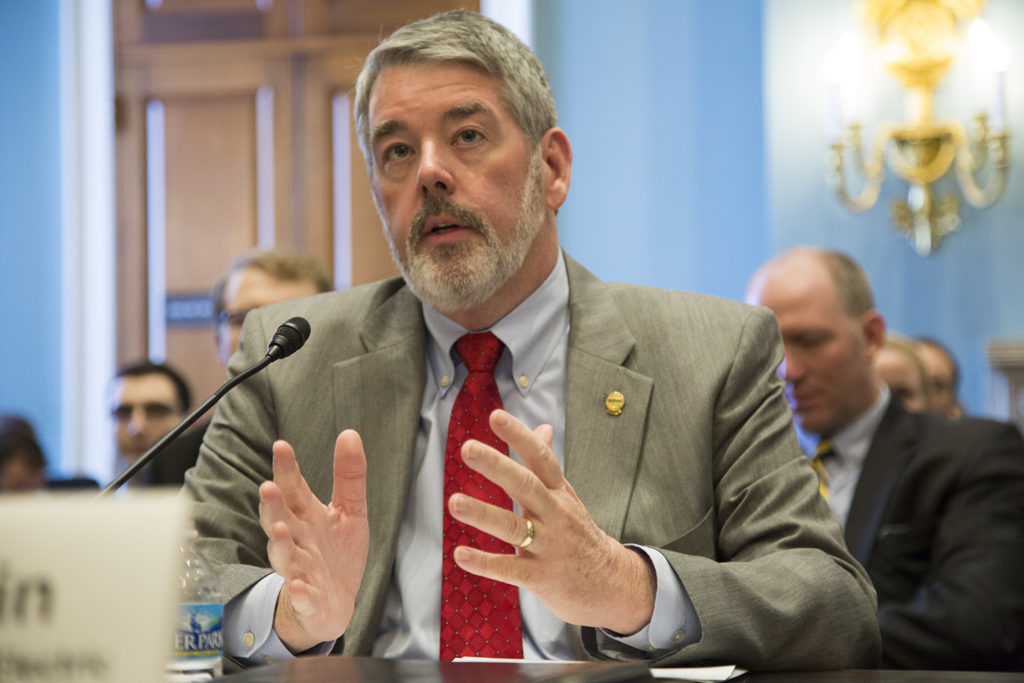
Rural broadband came to the fore on Capitol Hill, where electric co-ops were recognized for their leading role in rural development initiatives as lawmakers began work on a new Farm Bill.
“The Farm Bill contains important rural development tools that support our efforts to strengthen our communities,” Dennis Chastain, president and CEO of the Georgia Electric Membership Corp. told a House panel March 9.
“As Congress contemplates telecommunication and infrastructure policies in the Farm Bill and in other legislative packages, we believe that all potential providers, including electric cooperatives, should be eligible for programs designed to bridge the digital divide.”
Chastain testified on behalf of NRECA as well as the Georgia electric co-ops before the House Agriculture Subcommittee on Commodity Exchanges, Energy, and Credit.
“Broadband is absolutely quickly becoming a critical piece of infrastructure for rural communities,” Chastain said. “Rural communities have a lot of challenges already and not having access to broadband is one more brick on their wagon.”
The Department of Agriculture offers financial assistance to unserved or underserved communities through its Rural Utilities Service broadband loan program. The last Farm Bill included a Rural Gigabit Network Pilot Program to offer the highest internet speed available.
Electric co-ops have been installing fiber-based broadband to connect generation, transmission and distribution assets to run “smarter” and bolster efficiency and reliability. Many also are finding ways to offer broadband internet connections to members.
Chairman Austin Scott, R-Ga., questioned the idea of blocking RUS loan recipients from competing with incumbent broadband providers that also receive federal monies yet fail to install adequate high-speed service.
“There are cases out there where, unfortunately, incumbent providers who have RUS loans are not providing adequate service,” said Chastain, noting that the Georgia legislature tasked a study committee to examine the issue.
He recommended that incumbent providers with RUS loans be allowed “to prove they can provide that service. If not, there should be opportunities for others to come in and be able to provide that service.”
Chastain underscored how broadband is becoming “increasingly important” for co-op members and the rural economy. He recalled the challenge of trying to recruit global industries to rural Georgia which lacked adequate broadband and how even “mom and pop” businesses have a hard time competing.
Rural broadband “is something that we are going to have to look at, as a nation, as a priority for infrastructure improvement,” he said.
Cathy Cash is a staff writer for NRECA.